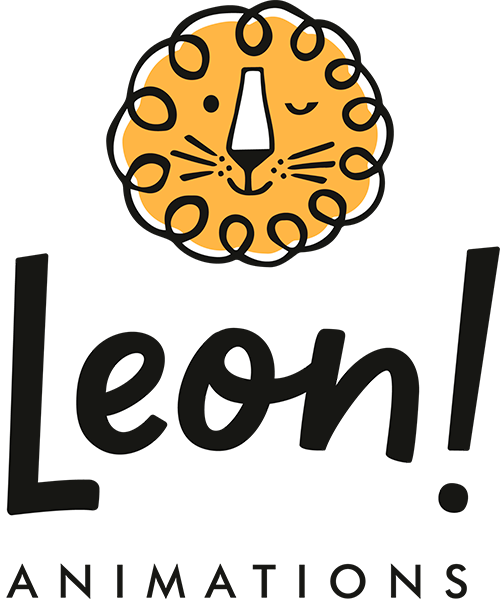Become a Genius! Explain to Toddlers - Leon! Animation Studio
If you can't explain it to a 5-year-old, you don't understand it.
The same goes for your animations. If a 5-year-old can't get them, then are you really communicating?
I don't think I'd be making a wild gamble to say you've heard of Albert Einstein.
I also don't think I'd be making a wild gamble if I were to say you agree that he's likely one of the greatest minds to have lived. Well, this great mind had a simple position on complex ideas:
"If you can't explain it to a 5-year-old, then you don't really understand it."
Okay, that wasn't exactly the quote. I'm pretty sure that Einstein didn't have a cohort of 5-year-olds (or kittens, for that matter) to bounce his theories off. So, I may have taken some creative liberty to drive home a point, but here's what he really said:
"If you can't explain it simply, you don't understand it well enough."
A deep understanding of a subject allows you to separate its core components into digestible ideas that are easy to communicate. Conversely, there's an implication that people who deliberately convolute or refuse to simplify their communication don't know what they're talking about.
AKA, they're full of it.
I think Einstein would probably agree with GK Chesterton, who said:
"It is a good exercise to try for once in a way to express any opinion one holds in words of one syllable."
Throughout history, many great minds have held that people who rely on complicated jargon probably don't have a deep understanding of their subject matter.
There is a line between simple and simplism.
Here's why this matters.
The objective of communication is to reach an understanding with whoever you're communicating with. You have something to say that has value, and you want people to understand you.
So how do you go about this?
You think like you're speaking to a 5-year-old.
But why a 5-year-old specifically?
Well, the age of the child you're attempting to communicate with doesn't matter. The point that these great minds were making (at least as far as we see it here at Leon! Animations) was not to assume a mutual context.
By communicating with a "child", you have to remove complicated and highly contextual jargon from your language, which forces you to simplify complex ideas into core concepts that are easy to understand.
Take these two statements about how aeroplane wings work, for example:
Statement 1:
"Plane wings are actually a relatively complex shape named an aerofoil. Aerofoils are distinctly convex on top and slightly concave on the bottom. This curvature forces the plane wing to move faster as it travels over the top surface of the wing. This increased velocity on the top of the wing, creates a pressure differential which generates an upward force or lift, which causes the plane to move upward."
Statement 2:
"Plane wings have a slight curve on their upper half that lifts the plane up, when the plane is moving."
I've "hammed up" Statement 1 quite a bit, but you're getting the point. The same idea is communicated a lot faster and more effectively with fewer syllables and fewer complex words.
I also avoided making the idea simpler than it actually is, which was another thing that Einstein cautioned against:
"Everything should be made as simple as possible, but not simpler".
Applying Both Ideas to Design
Simple and effective communication isn't just effective when using words. At Leon! Animations, we emphasise simplicity in everything we do. Why? Because simple messages STICK.
Right now, you can probably remember the names and logos of several popular brands. I'll show you: Nike, Adidas, Puma. Chances are, you could call every logo to mind without much difficulty.
Another example. Remember the aeroplane example earlier?
Can you remember Statement 2?
Probably enough of it that you can pass along the message, right?
How about Statement 1?
I bet you didn't even remember the word "aerofoil", and that's not your fault. Complex doesn't stick, so people have more difficulty passing along the info. So how do you think that would impact something like an explainer animation?
If you're attempting to communicate about something complex with an explainer, the best possible approach will be to cater to simplicity without making it simpler than it actually is.
If a complex word or two are unavoidable, then it's no big issue. But if every frame is full of triple-digit syllables and complex animations, your viewers will probably be entertained but won't remember much.
As it turns out, we specialise in simple, effective and entertaining 2D animations. So if you want to communicate an idea, feel free to reach out to us!
Contact us by clicking on the image below, and we'll book a quick chat to see what we can do for you and how soon.
Discover all 10 of our Simplification Commandments: 1) What's the 1st Step?, 2) Knowledge = Powah!, 3) Explain to Toddlers, 4) eXpEriMenT!, 5) Devil's Advocate, 6) Steal Sh*t!, 7) Take a Brake!, 8) Change Goals, 9) Give Up!, and 10) Ask for Help.
Our animation studio services for charities and healthcare organisations use these same principles to transform complexity into crystal-clear explainer videos.










